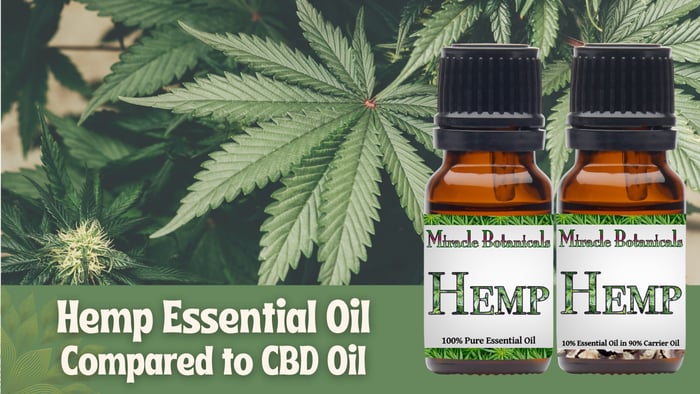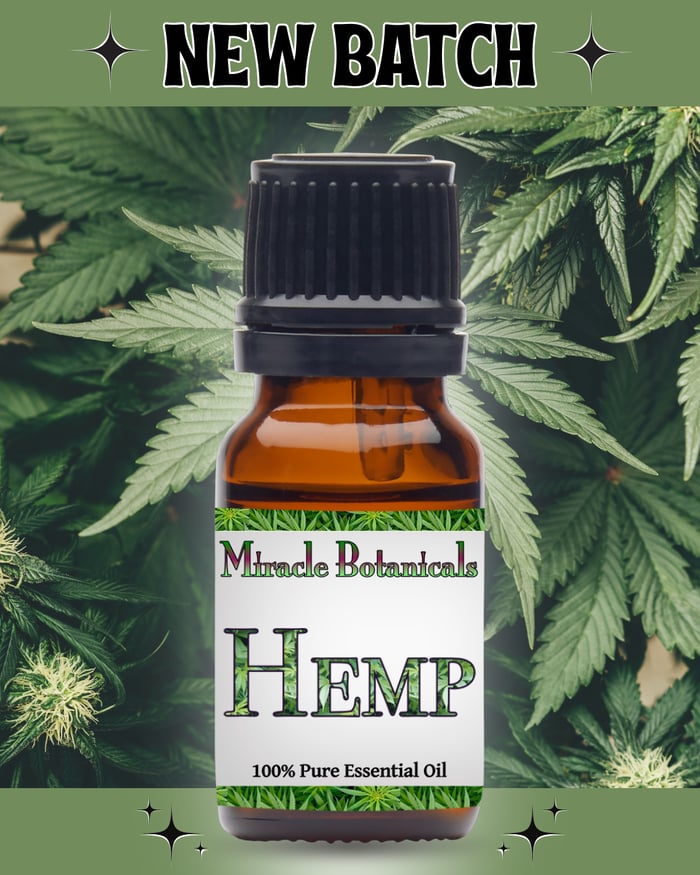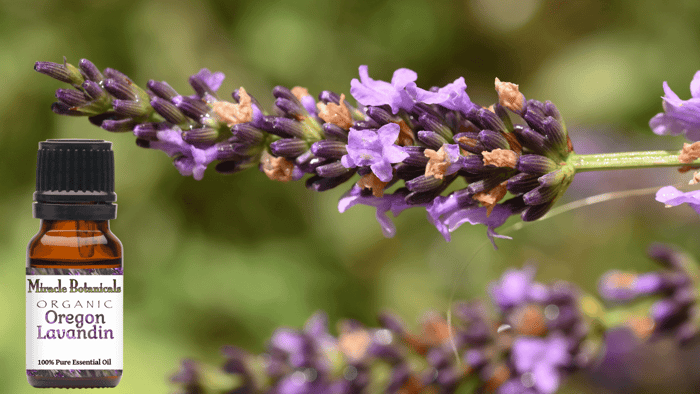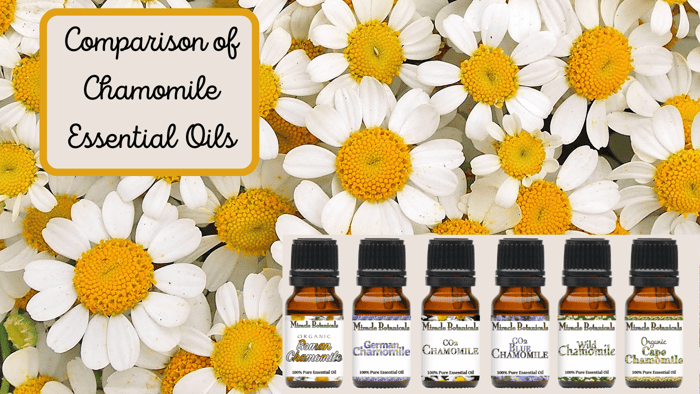Table of Contents
Hemp Essential Oil vs. CBD Oil: What's the Difference?
This article explores one of our favorite plant allies — Hemp Essential Oil — and how it compares to the increasingly popular CBD Oil. Though both are derived from the same plant, they differ significantly in composition, extraction method, action, and application.
From the Same Plant, But Not the Same Thing
Both CBD oil and hemp essential oil come from the Cannabis Sativa plant — specifically, the hemp variety, which contains less than 0.3% THC. This makes it non-psychoactive and legal in most parts of the world.
But the similarities largely stop there.
While CBD oil is known for its heavy-hitting effects on the endocannabinoid system, hemp essential oil works on a different plane — through the subtle intelligence of terpenes. These differences make each product unique in how it supports your body, mind, and mood.
Even though neither will get you “high,” their energetics are profoundly different: CBD tends to be heavier, grounding, and body-focused, whereas hemp essential oil feels more etheric, clear, and emotionally harmonizing. For those seeking clarity, uplift, or spiritual connection — without the fog or fatigue that can sometimes follow CBD use — hemp essential oil offers a radiant, plant-powered alternative.
What Is CBD Oil?
CBD (short for cannabidiol) is one of over 120 known cannabinoids found in the hemp plant. These naturally occurring compounds are unique to cannabis and work in harmony with a regulatory system in the body called the endocannabinoid system (ECS).
The ECS is a vast cellular communication network found throughout the brain, organs, immune cells, connective tissues, and glands. Its main role? To help maintain homeostasis — a fancy word for internal balance — across all major systems. This includes mood, pain perception, sleep cycles, appetite, inflammation response, memory, and even hormone regulation.
CBD interacts indirectly with the ECS by modulating both CB1 receptors (primarily in the brain and central nervous system) and CB2 receptors (mainly found in the immune and peripheral systems). Unlike THC, CBD doesn’t bind directly to these receptors — instead, it helps regulate their activity and encourages the body’s own production of beneficial endocannabinoids like anandamide (often called the “bliss molecule”).
Because of this broad-reaching influence, CBD has become popular for addressing a wide variety of concerns — from physical pain to emotional stress to neurological conditions. It’s also being studied for its potential antioxidant, anti-inflammatory, neuroprotective, and anxiolytic (anxiety-reducing) properties.
That said, CBD is not one-size-fits-all. Its effects can vary depending on your individual biochemistry, dosage, and the quality of the product. Some people experience significant benefits, while others find that the effects are subtle or inconsistent over time.
How It’s Made:
CBD oil is typically extracted from hemp using CO₂ extraction or solvent-based methods.
CO₂ extraction (especially supercritical) is considered the cleanest and most precise. It uses pressurized carbon dioxide to pull cannabinoids and terpenes from the plant without leaving harmful residues. This method preserves purity and allows for better control over which compounds are extracted.
Solvent extraction (using ethanol or hydrocarbons like butane) is faster and cheaper but riskier. If not properly done, it can leave behind solvent traces or strip out beneficial compounds like terpenes.
After extraction, the concentrated CBD is diluted into a carrier oil (like MCT or hemp seed oil) for easier dosing and absorption. Some formulations may include added flavors, terpenes, or other botanicals.
The quality of CBD oil depends heavily on the source of the hemp, the extraction method, and whether it’s a full-spectrum, broad-spectrum, or isolate formula — all of which affect potency, safety, and overall effectiveness.
✅ Potential Benefits:
Reduces anxiety and stress responses
Helps regulate sleep and circadian rhythm
Eases chronic pain and inflammation
May support seizure disorders and neurological conditions
⚠️ Side Effects & Considerations:
May cause dry mouth, drowsiness, or digestive discomfort
Effects can vary day to day (some users report tolerance buildup)
Can interfere with medications or other supplements
May show up on drug tests, depending on processing and trace THC levels
What Is Hemp Essential Oil?
Hemp Essential Oil is a highly aromatic extract obtained through steam distillation of the Cannabis Sativa plant’s flowers and upper leaves — the most terpene-rich parts of the plant. Unlike CBD oil, which contains cannabinoids like cannabidiol (CBD), hemp essential oil contains no cannabinoids at all — not even trace amounts of THC.
This is due to a beautiful bit of plant chemistry: cannabinoids are too heavy and non-volatile to travel with steam, so they are left behind during the distillation process. What’s captured instead is the pure essence of the plant’s aroma — its volatile organic compounds, known as terpenes.
And this is where the magic lies.
These terpenes are the plant’s chemical language — fragrant molecules that carry specific messages to your nervous system, your immune cells, even your emotional body. They’ve been shown to influence mood, inflammation, pain signaling, and more — often with precision and elegance that modern pharmaceuticals struggle to match.
Because hemp essential oil is entirely cannabinoid-free, it’s safe for all ages, universally legal, and does not interfere with the endocannabinoid system in the same way as CBD. Instead, it works through the olfactory system and limbic brain, accessing pathways that regulate memory, stress response, and emotional equilibrium.
We like to think of terpenes as messengers of light — they whisper instructions to your cells, guide your system toward balance, and then dissolve without a trace, leaving only clarity and calm in their wake.
This is the beauty of true essential oils: they act quickly, subtly, and energetically — like botanical tuning forks for your body and mind.
Terpene-Rich, Soul-Centered Aromatherapy
Our Hemp Essential Oil is especially rich in:
Myrcene – a musky, earthy terpene known for:
Sedative and analgesic effects
Enhancing cell permeability (may help other compounds absorb better)
Anti-inflammatory action
Beta-Caryophyllene – a spicy, peppery terpene that:
Is the only terpene known to directly activate CB2 receptors (part of the ECS)
Has powerful anti-inflammatory, anti-anxiety, and neuroprotective effects
May protect the digestive tract lining and support gut health
In tandem, these terpenes offer deep grounding and whole-body balance — without overwhelming the system.
CBD Oil vs. Hemp Essential Oil
| Feature | CBD Oil | Hemp Essential Oil |
|---|---|---|
| Plant Part Used | Flowers, stalks | Flowers and leaves |
| Extraction Method | CO₂ or solvent-based | Steam distillation |
| Main Compounds | Cannabinoids (esp. CBD), possibly terpenes | Terpenes only (myrcene, beta-caryophyllene, etc.) |
| Contains THC? | Often contains trace amounts | 100% THC-free |
| Targets | Endocannabinoid receptors (CB1/CB2) | Olfactory system, nervous system, subtle energy body |
| Legal Status | Regulated in some areas | Universally legal |
| Possible Side Effects | Drowsiness, dry mouth, fatigue | Minimal to none |
| Risk of Drug Test Detection | Possible | None |
| Shelf Life | 1–2 years | 2–4 years (if stored properly) |
Why Choose Hemp Essential Oil?
While CBD oil is often used for acute symptom relief, hemp essential oil offers a more subtle and sustainable path to wellness. It’s non-sedative, non-habit-forming, and works synergistically with the body's innate intelligence.
Use it:
In a diffuser or direct inhalation for mood and nerve support
In blends for topical pain relief
As a grounding element in meditation or ritual
To uplift the emotional body without numbing it
Try It for Yourself:
This essential oil has become an integral part of several of our most-loved blends, including:
Dankincense — our cheeky and grounding combo of Hemp and Frankincense
Why Choose Hemp Essential Oil?
If you're seeking a pure, aromatic, and fast-acting remedy for nervous system regulation, muscular tension, or emotional overwhelm, Hemp Essential Oil offers powerful support without the side effects sometimes associated with CBD oil.
Plus, the aroma? Absolutely divine. Fresh, herbal, slightly spicy, and deeply grounding — a true sensory ally.
Explore our latest fresh batch of Hemp Essential Oil here.
Hemp Essential Oil

$39.97
Botanical Name: Cannabis Sativa Plant Part: Herb Method of Extraction: Steam Distilled Country of Origin: Canada Color/Consistency: Clear with Thin Consistency Aroma: Strong, Earthy, Herbal Perfumery Note: Middle Main Chemical Components: beta-Caryophyllene, Myrcene, alpha-Humulene … read more
FAQs
What’s the Main Difference Between Hemp Essential Oil and CBD Oil?
The main difference lies in what they contain and how they’re made.
CBD Oil is extracted with solvents to pull out cannabinoids like CBD, which interact with your endocannabinoid system. While potentially therapeutic, they can cause side effects and may linger in the body.
Hemp Essential Oil is made by steam distillation, capturing only the plant’s aromatic terpenes — no cannabinoids, no side effects, and no buildup. Terpenes are gentle, fast-acting compounds that support balance, mood, and pain relief.
In short: CBD oil = cannabinoids. Hemp essential oil = terpenes. Both come from hemp, but offer very different experiences.






